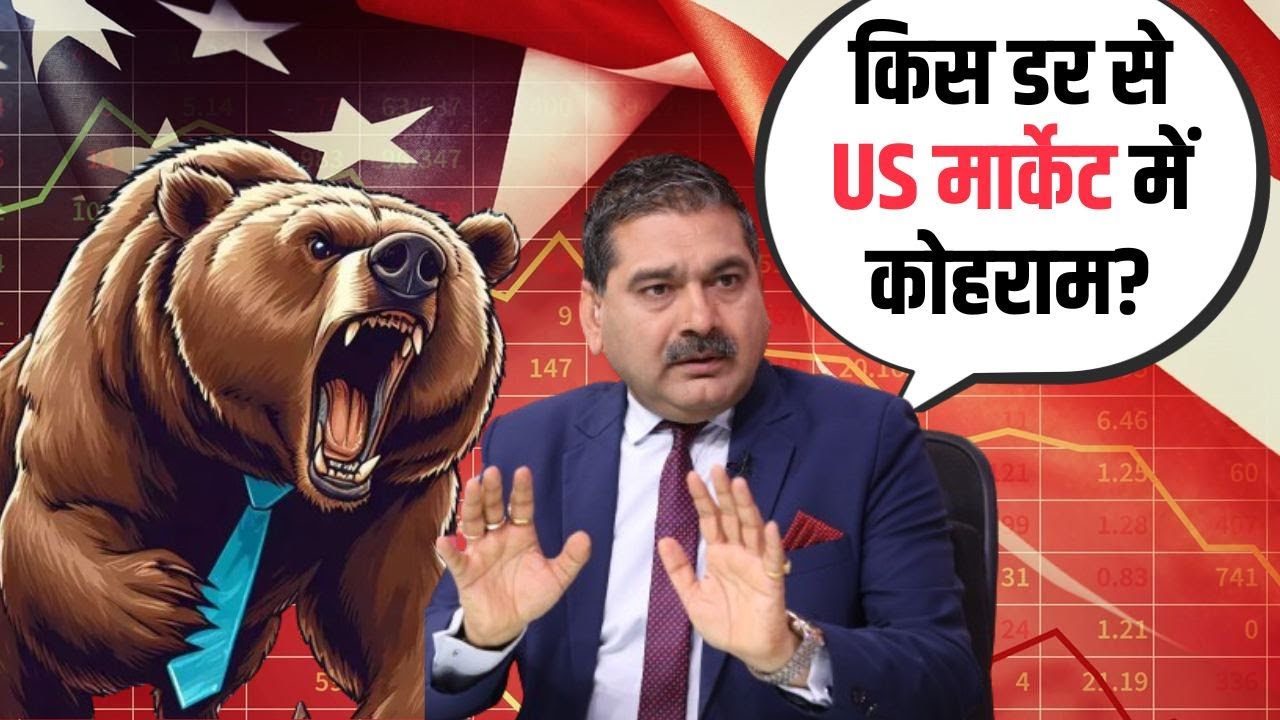Why the markets meltdown isn't spooking the RBA into cutting rates | The Business | ABC News
Summary
TLDRGlobal markets experienced a sharp selloff due to fears of a US recession and rising interest rates in Japan. The Dow Jones fell over a thousand points, and the NASDAQ saw its worst days in more than two years. The Reserve Bank of Australia (RBA) held rates steady at 4.35%, despite market expectations for cuts. The RBA predicts unemployment to rise and inflation to take longer to reach target, with some economists and banks forecasting a rate cut by early next year. Investors are concerned about the potential for more economic risks, while households face increased cost of living pressures.
Takeaways
- 📉 Global markets experienced a significant selloff, with the Dow Jones Industrial Average down over a thousand points.
- 😟 The NASDAQ suffered its worst Sweet Days in more than two years, indicating a deep downturn in the tech-heavy index.
- 😨 Concerns over a potential US recession and rising interest rates in Japan have unsettled investors worldwide.
- 🇦🇺 The Reserve Bank of Australia (RBA) decided to keep rates on hold at 4.35%, despite market expectations for a cut.
- 💡 RBA Governor believes the economy has settled down and cautions against alarm, suggesting a need for calm and patience.
- 🚫 Inflation in Australia is not falling as quickly as desired, leaving the RBA with limited options other than holding rates.
- 🤔 The RBA now forecasts a longer timeline to achieve the midpoint of their inflation target by the end of 2026, instead of the middle of 2026.
- 📈 The RBA sees the economy operating beyond its capacity, suggesting that interest rate cuts are not imminent.
- 🏦 Some Australian banks and money markets are forecasting an interest rate cut by early next year, despite the RBA's stance.
- 🏠 Rising interest rates have increased the cost of living for Australians, impacting mortgage repayments and home ownership aspirations.
- 🗝️ The Bank of Japan's decision to raise interest rates has had a ripple effect on global markets, particularly in Asia.
Q & A
What was the main cause of the global market selloff mentioned in the script?
-The global market selloff was intensified by fears of a US recession, rising interest rates in Japan, and the panic reverberating back to Australia.
How did the Reserve Bank of Australia (RBA) respond to the market situation?
-The RBA decided to leave rates on hold at 4.35% and did not alarm the Governor, who suggested having a little bit of caution and calm.
What was the RBA's stance on inflation and interest rate cuts?
-The RBA warned that inflation wasn't falling fast enough, leaving the board with limited options and suggesting that interest rate cuts were not imminent.
What was the RBA's expectation regarding unemployment and inflation?
-The RBA now expects unemployment to rise sooner than expected and it will take longer to get underlying inflation back to target, pushing the midpoint of the target to the end of 2026.
How did the Australian banks and money market react to the RBA's decision?
-Despite the RBA Governor ruling out a rate cut this year, two of Australia's biggest banks are forecasting a rate cut by Christmas, with the money market expecting one by February.
What impact has the rise in interest rates had on households like Stacy Gleon's?
-Stacy Gleon's mortgage repayments have skyrocketed from around 1,300 to 2,000 per month, making her dream of moving closer to her family unattainable.
What factors contributed to the sharp fall in the Japanese equity markets?
-The sharp fall was due to the Bank of Japan raising interest rates, leading to an unwinding of the Japanese carry trade and a surge in the Japanese Yen.
Why did the Bank of Japan decide to raise interest rates?
-The Bank of Japan had valid reasons to start lifting interest rates as the Japanese economy was doing better, and inflation was running around the target.
What was the market's reaction to the Bank of Japan's rate hike?
-The market reacted with a significant sell-off, with Japanese share markets experiencing their worst session in decades.
What is the relationship between markets and central banks, according to Shane Oliver?
-Markets and central banks have a to-and-fro relationship where markets often run ahead, central banks raise rates to cool them down, and then markets fall, prompting central banks to cut rates.
What does Shane Oliver believe about the RBA's decision to hold interest rates steady?
-Shane Oliver believes the RBA was a bit too hawkish and should have been more concerned about the US economic situation and its potential impact on Australia.
When does Shane Oliver expect the RBA to start cutting interest rates?
-Shane Oliver expects the RBA to start cutting interest rates within the next six months, with a base case for a cut in February.
Outlines

This section is available to paid users only. Please upgrade to access this part.
Upgrade NowMindmap

This section is available to paid users only. Please upgrade to access this part.
Upgrade NowKeywords

This section is available to paid users only. Please upgrade to access this part.
Upgrade NowHighlights

This section is available to paid users only. Please upgrade to access this part.
Upgrade NowTranscripts

This section is available to paid users only. Please upgrade to access this part.
Upgrade NowBrowse More Related Video

‘Biggest Fear Is The Fear Of US Recession’: Steve Englander

What Triggered Massive Sell-Offs in the US Market? | Anil Singhvi Market Analysis and Predictions

The Global Stock Market Crash JUST HAPPENED. And Its Much Worse Than We Could've Imagined…

🚨 Japan Just Issued an URGENT Warning: U.S. Not Ready for This Wipeout

Japan, US and Indian Market CRASH!! - Cause of BIG Concern? - Rahul Jain Analysis #marketcrash

David Rosenberg - How To Prepare For Economic Collapse - Jimmy Connor
5.0 / 5 (0 votes)